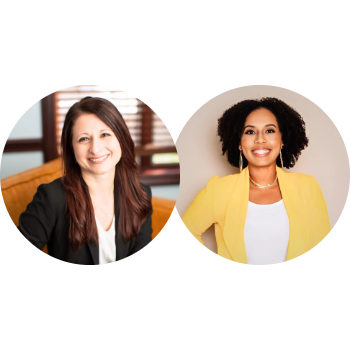Addressing Sexuality and Sexual Health with Adolescents
Presented by: Rachel Jacoby, PhD and LaToya Smith, PhD
 This on-demand professional training program on Addressing Sexuality and Sexual Health with Adolescents is presented by Rachel Jacoby, PhD, and LaToya Smith, PhD.
This on-demand professional training program on Addressing Sexuality and Sexual Health with Adolescents is presented by Rachel Jacoby, PhD, and LaToya Smith, PhD.
This program explores the developmental implications of adolescent sexuality and sexual health. During the program, communication approaches on tough subjects such as internet safety, safe sex, pregnancy, and conversations with family members are addressed. This program is ideal for all mental health professionals and students—particularly individuals who work with or plan to work with teenagers or parents/caregivers.
Participants walk away from this presentation knowing how to navigate conversations surrounding sexual health for adolescents and how to provide resources and support tools to teens and their families.
The resources offered in this program provide mental health professionals with communication tools and resources to help strengthen their practice. Training programs on the subject of adolescence and sexuality in the mental health field are limited in the counseling-specific profession. This program offers educational resources to participants interested in growing their knowledge of sexual health for adolescents.
This program is developed using a multicultural lens. All aspects of this program embed clinical considerations for professionals working with ethnic, racial, religious, gender, and sexually-diverse, and socioeconomically diverse populations. Additionally, both presenters work from brave pedagogies, encouraging participants to feel safe to address topics surrounding social justice issues that clients and professionals may face.
Upon completion of this training, participants will be able to:
Palo Alto University, Continuing & Professional Studies (CONCEPT) is approved by, recognized by, or maintains sponsorship provider status with the following boards and agencies. We maintain responsibility for all content in our CE/CPD programs. For more information, visit here.
American Psychological Association (APA): Approved sponsor of continuing education for psychologists.
Association of Social Work Boards (ASWB): Approved continuing education provider (ACE program, Provider #1480), 11/22/2023–11/22/2026.
Canadian Psychological Association (CPA): Approved to sponsor continuing education for psychologists.
National Board for Certified Counselors (NBCC): Approved Continuing Education Provider (ACEP No. 7190).
Palo Alto University, Continuing and Professional Studies (CONCEPT) is approved by the American Psychological Association to sponsor continuing education for psychologists. Palo Alto University, Continuing and Professional Studies (CONCEPT) maintains responsibility for this program and its content. Palo Alto University, Continuing and Professional Studies (CONCEPT), is approved by the Canadian Psychological Association to offer continuing education for psychologists. Palo Alto University, Continuing and Professional Studies (CONCEPT), SW CPE is recognized by the New York State Education Department’s State Board for Social Work as an approved provider of continuing education for licensed social workers #SW-0356 and the New York State Education Department’s State Board for Mental Health Practitioners as an approved provider of continuing education for licensed mental health counselors. #MHC-0073. Palo Alto University, Continuing and Professional Studies (CONCEPT) has been approved by NBCC as an Approved Continuing Education Provider, ACEP No. 6811. Programs that do not qualify for NBCC credit are clearly identified. CONCEPT Professional Training, #1480, is approved to offer social work continuing education by the Association of Social Work Boards (ASWB) Approved Continuing Education (ACE) program. Organizations, not individual courses, are approved as ACE providers. State and provincial regulatory boards have the final authority to determine whether an individual course may be accepted for continuing education credit. CONCEPT Professional Training maintains responsibility for this course. ACE provider approval period: 11/22/23-11/22/26. Social workers completing this course receive (clinical or social work ethics) continuing education credits.